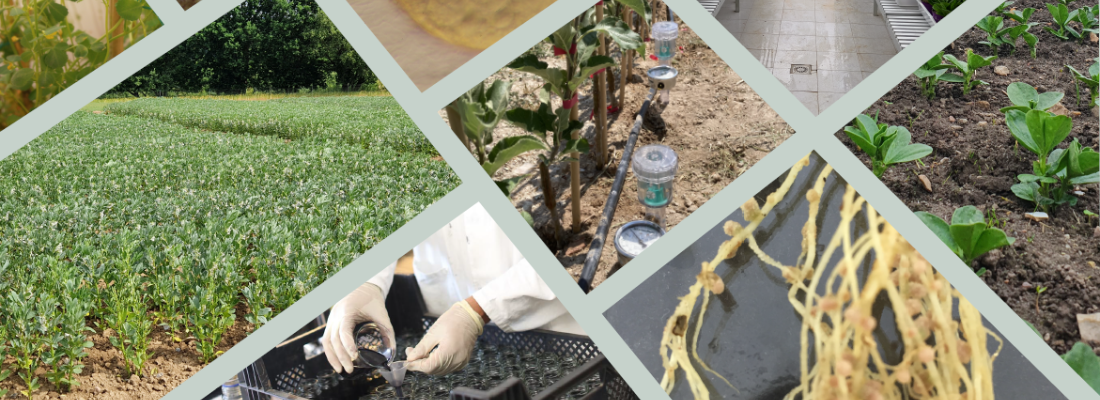Agroecology Reading time 2 min
Soil microorganisms for sustainable agriculture
Published on 16 October 2024

Fungi or bacteria, there are many beneficial soil microorganisms associated with roots that improve plant nutrition and protection against pathogens and pests. These include arbuscular mycorrhizal fungi, nodule-inducing nitrogen-fixing bacteria and many other bacteria and fungi that promote plant growth.
Identification of environmental and genetic determinants controlling their interactions with crops is paramount for the development of a more sustainable agriculture, and this requires multi-disciplinary research approaches. However, the research field remains fragmented and beneficial microorganism interactions with plant roots are often overlooked in agricultural management practices or in breeding programs.
ROOT-BENEFIT, funded by the European cooperation in science and technology organisation (COST), aims to bring together specialists of these different types of beneficial interactions working at different levels of study, together with socio-economic actors to create a network able to:
- sum up and disseminate the current knowledge on agronomic, environmental and economic impacts of the services provided by beneficial root-associated microorganisms;
- perform meta-analyses with existing datasets;
- identify gaps in the current knowledge and define future research priorities;
- propose methodologies and strategies for implementing or improving crop interactions with beneficial root-associated microorganisms in agriculture;
- propose recommendations on microbial applications to inoculant producers, policy-makers and end-user farmers.
To achieve these challenges, four working groups have been set up, ranging from functional characterization and the study of molecular mechanisms to ecosystem services and agricultural applications.
« As part of the SYMBIPHYT network funded by INRAE, which aims to structure the French research community on beneficial root-associated microorganisms, we have identified the need to federate the European community and bring together skills to carry out interdisciplinary research combining levers to optimise the services provided by these microorganisms, such as plant genetics, agricultural practices, selection of strains for inoculation... » Benoit Lefebvre
The project in a few figures:
- Financing: 600-700k€
- Duration: 4 years
- Members: 300
- Countries: 34

Beneficial root-associated microorganisms for sustainable agriculture (ROOT-BENEFIT) is a project funded by the European Union (CA22142).
